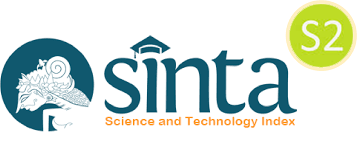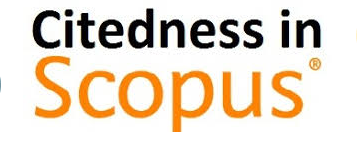Gujarat Land Grabbing Act: Comparative and Analytical Analysis of Absence of Right to Appeal
DOI:
https://doi.org/10.18196/iclr.v7i2.22136Keywords:
appeal rights, criminal law reform, legal representation, miscarriage of justice, possessory rights disputesAbstract
This article connotes a comparative and analytical lens to the right to appeal against the conviction, sentencing or acquittal and against the judgment deciding the possessory rights under the Gujarat Land Grabbing (Prohibition) Act 2020 that legislates the punitive and civil subject-matter. It is introduced in State of Gujarat, India, by categorically absenting the provision of appeal. The article advocates the logical importance of the appeal and also compares the appealing provisions in other criminal and civil laws of India and other countries. The article argues that the notable interconnection in how appeals have been gestated in Indian civilized society. Secondly, this article highlights the negative effect of the absence of the right to appeal to the victim or accused and the litigant for the possessory civil rights. Thirdly, it also touches on the issues of human error and mistake, by the judge or jury, as a common motion of human existence. Hence, the examination by the sufficiently more judges strengthen the justice system. Fourthly, the State of Gujarat is bound to codify the right of appeal in the law as India is a signatory of ICPCR 1966 which, under Article 14, has engrafted provision to provide the right of appeal
References
America Vs. Quintero-Barraza 78 F.3d 1344, 1347 (9th Cir. 1995).
American Jurist: Chad M. Oldfather, Error Correction, Indiana Law Journal. Issue 1. Article 2. (2010) p. 49-85. https://ilj.law.indiana.edu/articles/85/85_1_Oldfather.pdf
Barman, Dhiraj, and Subhanil Chowdhury, ‘Land for Urbanization: Shifting Policies and Variegated Accumulation Strategies in a Fast-Growing City in Eastern India’, Land Use Policy, 140 (2024), p. 107111, doi:10.1016/j.landusepol.2024.107111
Bhaduri, Amit, and Kaustav Banerjee, ‘Land Acquisition and Economic Development: A Decolonised View’, World Development, 192 (2025), p. 107011, doi:10.1016/j.worlddev.2025.107011
Dulhunty, Annabel, ‘When Extractive and Racial Capitalism Combine – Indigenous and Caste Based Struggles with Land, Labour and Law in India’, Geoforum, 147 (2023), p. 103887, doi:10.1016/j.geoforum.2023.103887
Dutta, Chandra Kumar, and others, ‘Land Suitability and Human Adaptation: River Siang from Sangam to Pongging, Arunachal Pradesh, India’, World Development Sustainability, 5 (2024), p. 100179, doi:10.1016/j.wds.2024.100179
Core InstrumentUniversal Instrument, International Covenant on Civil and Political Rights Adopted and opened for signature, ratification and accession by General Assembly resolution 2200A (XXI) of 16 December 1966, entry into force 23 March 1976, in accordance with Article 49. https://www.ohchr.org/sites/default/files/ccpr.pdf
Ganga Bai Vs. Vijay Kumar AIR 1974 SC 1126. (Supreme Court of India: Ganga Bai vs Vijay Kumar & Ors on 9 April, 1974; Equivalent citations: 1974 AIR 1126, 1974 SCR (3) 882, AIR 1974 SUPREME COURT 1126, 1974 3 SCR 882, 1974 2 SCC 393, 1974 MAH LJ 602, 1974 MPLJ 629, 1974 SCD 682. Author: Y.V. Chandrachud; Bench: Y.V. Chandrachud, M. Hameedullah Beg) https://indiankanoon.org/doc/1350326/.
Griffin Vs. Illinois 351 Us 12(1955). (Justisia U.S. Supreme Court, Griffin v. Illinois, 351 U.S. 12 (1956), Griffin v. Illinois, No. 95). https://supreme.justia.com/cases/federal/us/351/12/
Hansen, Patrick David, Stacking Appellate Dissents: Due Process In The Appellate Arena, Val. U. L. Rev., 18, (1983) p. 141 - 144. https://scholar.valpo.edu/vulr/vol18/iss1/4
International Human Rights Law and Practice Committee, Final Report on The Impact of The Findings of United Nations Human Rights Treaty Bodies, Para. 38 (2004). https://www.ohchr.org/sites/default/files/Documents/Publications/NgoHandbook/ngohandbook4.pdf
Jain, Charu, and others, ‘Women’s Land Ownership in India: Evidence from Digital Land Records’, Land Use Policy, 133 (2023), p. 106835, doi:10.1016/j.landusepol.2023.106835
Jain, Madhavi, ‘Future Land Use and Land Cover Simulations with Cellular Automata-Based Artificial Neural Network: A Case Study over Delhi Megacity (India)’, Heliyon, 10.14 (2024), p. e34662, doi:10.1016/j.heliyon.2024.e34662
Jesrani, Tejal, and Daimiris Garcia, ‘Gendered SLAPPs: Addressing Criminal Prosecutions against Exposers of Sexual and Gender-Based Violence under International Human Rights Law’, International Journal of Law, Crime and Justice, 80 (2025), p. 100729, doi:10.1016/j.ijlcj.2025.100729
Kar, Sabyasachi, Gaurav R Sinha, and Puneet Dwivedi, ‘Rules and Interactions around Customary Tree Ownership in Forested Public Lands: A Qualitative Study in Jharkhand, India’, Forest Policy and Economics, 172 (2025), p. 103442, doi:10.1016/j.forpol.2025.103442
von Krauland, Anna-Katharina, and Mark Z Jacobson, ‘India Onshore Wind Energy Atlas Accounting for Altitude and Land Use Restrictions and Co-Located Solar’, Cell Reports Sustainability, 1.5 (2024), p. 100083, doi:10.1016/j.crsus.2024.100083
Kujur, John, and others, ‘Marginals within the Marginalised: Exploring the Changes in Occupational Pattern among Adivasi Women in the Context of Land Alienation in India’, World Development, 182 (2024), p. 106715, doi:10.1016/j.worlddev.2024.106715
Langbein, John H., Renée Lettow Lerner & Bruce P. Smith, History of The Common Law: The Development of Anglo-American Legal Institutions, (Aspen Publishing, 2009), p.416. https://aspenpublishing.com/products/langbein-historyofthecommonlaw?srsltid=AfmBOoqpKXVQfZl4UNmzGYxKvVZ1LnBMFQGnYaW7DgQKACGZdq9HWz2r.
Mader, Philip, ‘Orchestrating Self-Empowerment in Tribal India: Debt Bondage, Land Rights, and the Strategic Uses of Spirituality’, World Development, 174 (2024), p. 106440, doi:10.1016/j.worlddev.2023.106440
De Mot, Jef, Michael Faure, and Jonathan Klick, ‘Appellate Caseload and the Switch to Comparative Negligence’, International Review of Law and Economics, 42 (2015), pp. 147–56, doi:10.1016/j.irle.2015.01.003
Mount, Liz, ‘“Rescuing the Reformable: NGO Interventions, Queer Necropolitics, and the Criminalization of Hijra Families in India”’, Women’s Studies International Forum, 111 (2025), p. 103123, doi:10.1016/j.wsif.2025.103123
McKane Vs. Durston 153 Us 684 (1894). (Justisia U.S. Supreme Court McKane v. Durston, 153 U.S. 684 (1894), McKane v. Durston, No. 1185). https://supreme.justia.com/cases/federal/us/153/684/
Orfield, Lester B., The Right of Appeal In Criminal Cases, Michigan Law Review., 34.7 (1936), p. 937, 938. https://repository.law.umich.edu/mlr/vol34/iss7/3/.
Pattenden, Rosemary, English criminal appeals, 1844-1994 : appeals against conviction and sentence in England and Wales, 5th edition, (New York: Clarendon Press,1996).
Silva, Jeovan Assis, and Tomas Aquino Guimaraes, ‘Factors Affecting Judicial Review of Regulatory Appeals’, Utilities Policy, 72 (2021), p. 101284, doi:10.1016/j.jup.2021.101284
Sinha, Meenakshi, ‘Harnessing Land Value Capture: Perspectives from India’s Urban Rail Corridors’, Land Use Policy, 108 (2021), p. 105526, doi:10.1016/j.landusepol.2021.105526
Slavchevska, Vanya, and others, ‘From Law to Practice: A Cross-Country Assessment of Gender Inequalities in Rights to Land’, Global Food Security, 45 (2025), p. 100852, doi:10.1016/j.gfs.2025.100852
Stock, Ryan, ‘Triggering Resistance: Contesting the Injustices of Solar Park Development in India’, Energy Research & Social Science, 86 (2022), p. 102464, doi:10.1016/j.erss.2021.102464
Subramanian, Arjunan, and Parmod Kumar, ‘Property Rights, Factor Allocation and Household Welfare: Experimental Evidence from a Land Titling Program in India’, Journal of Development Economics, 167 (2024), p. 103238, doi:10.1016/j.jdeveco.2023.103238
Section 100 of Civil Procedure Code, 1908. (Union of India – Section: Section 100 in The Code of Civil Procedure, 1908). https://indiankanoon.org/doc/192138551/.
Section 111(1) Magistrates' Courts Act,1980. https://www.legislation.gov.uk/ukpga/1980/43/section/111
Section 115 of Civil Procedure Code, 1908. (Union of India – Section: Section 115 in The Code of Civil Procedure, 1908). https://indiankanoon.org/doc/82577596/.
Section 34 of Arbitration and Conciliation Act, 1996. (Union of India – Subsection: Section 34(2) in The Arbitration And Conciliation Act, 1996). https://indiankanoon.org/doc/439304/
Sibley, N.W., Criminal Appeal and Evidence, 19, N.2, (Making of the Modern Law:1908 import Gale, Making of Modern Law (20 December 2010). https://www.amazon.in/Criminal-Appeal-Evidence-N-Sibley/dp/1240125909
The Indian Express. Gujarat Land Grabbing (Prohibition) Act: HC suggests state to consider amendments https://indianexpress.com/article/cities/ahmedabad/gujarat-land-grabbing-hc-amendments-7641855/ (published on 26.11.2021).
United Nations General Assembly Resolution, 2200a (xxi), (Dated 16.12.1966). International Covenant on Economic, Social and Cultural Rights Adopted and opened for signature, ratification and accession by General Assembly resolution 2200A (XXI) of 16 December 1966. https://www.un.org/en/development/desa/population/migration/generalassembly/docs/globalcompact/A_RES_2200A(XXI)_economic.pdf
United Nations Human Rights Commission, General Comment 32, Para. 2, U.N. Doc. No. Ccpr/C/Gc/32, (Aug. 23, 2007). https://digitallibrary.un.org/record/606075?ln=en&v=pdf
Welch, Casey, and John Randolph Fuller, ‘Chapter 11 - The Right to Appeal and the Appellate Process’, ed. by Casey Welch and John Randolph B T - American Criminal Courts Fuller (Anderson Publishing, Ltd., 2014), pp. 378–413, doi:10.1016/B978-1-4557-2599-1.00011-4
Downloads
Published
Issue
Section
License
Copyright (c) 2025 Nisarg Nirajkumar Jain, Nisarg Nirajkumar Jain, Nisarg Nirajkumar Jain

This work is licensed under a Creative Commons Attribution 4.0 International License.
By publishing with Indonesian Comparative Law Review, authors agree to the following terms:
1. Authors retain the copyright to their work and grant Indonesian Comparative Law Review the right of first publication, while also licensing the work under a Creative Commons Attribution License (CC BY 4.0). This license permits others to share the work, provided they acknowledge the author and the initial publication in this journal.
2. Authors may enter into separate agreements for non-exclusive distribution of the published version of their work, such as posting it to an institutional repository or including it in a book, with acknowledgement of its initial publication in this journal.
3. Authors are encouraged to share their work online, for example on institutional repositories or personal websites, both before and during the submission process. This practice can lead to productive exchanges and increased citation of published work.



